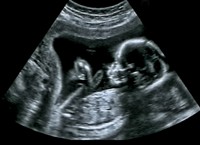Advertisement
Grab your lab coat. Let's get started
Welcome!
Welcome!
Create an account below to get 6 C&EN articles per month, receive newsletters and more - all free.
It seems this is your first time logging in online. Please enter the following information to continue.
As an ACS member you automatically get access to this site. All we need is few more details to create your reading experience.
Not you? Sign in with a different account.
Not you? Sign in with a different account.
ERROR 1
ERROR 1
ERROR 2
ERROR 2
ERROR 2
ERROR 2
ERROR 2
Password and Confirm password must match.
If you have an ACS member number, please enter it here so we can link this account to your membership. (optional)
ERROR 2
ACS values your privacy. By submitting your information, you are gaining access to C&EN and subscribing to our weekly newsletter. We use the information you provide to make your reading experience better, and we will never sell your data to third party members.
Biological Chemistry
Fetal DNA Sequencing Opens Door
Baby’s DNA in mom’s plasma can be used for prenatal whole-genome sequencing and genetic screening
by Celia Henry Arnaud
June 11, 2012
| A version of this story appeared in
Volume 90, Issue 24
Fetal DNA obtained from the mother’s plasma can be used for whole-genome sequencing and identification of point mutations in the genome of the unborn child, Jay Shendure of the University of Washington, Seattle, and coworkers report (Sci. Transl. Med., DOI: 10.1126/scitranslmed.3004323). Such noninvasive sequencing methods could be easier and safer than placental tissue sampling for the entire range of more than 3,000 known single-gene “Mendelian” disorders. The researchers determined a fetus genome sequence by combining individual genome sequencing of the two parents with 78-fold sequence coverage of the maternal plasma DNA, approximately 13% of which comes from the fetus. With this sequence information they predicted parental inheritance and identified point mutations—sequences not inherited from either parent—in the child’s DNA. They checked their findings by sequencing DNA obtained from cord blood after birth. The team correctly identified 39 of 44 point mutations, but with limited specificity (a measure related to false positives). In this case, they were better able to predict maternal than paternal inheritance because the father’s DNA, which was obtained from saliva, was of insufficient quality to identify haplotypes, which are combinations of gene variants located close to one another on a chromosome.



Join the conversation
Contact the reporter
Submit a Letter to the Editor for publication
Engage with us on Twitter